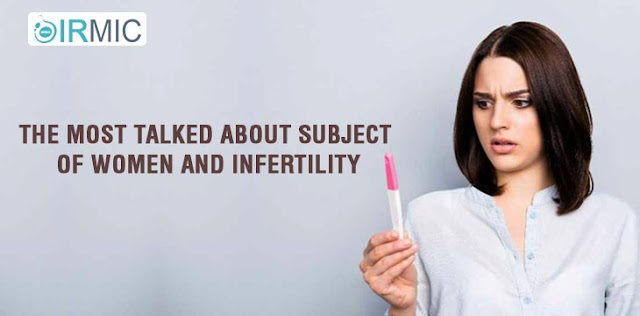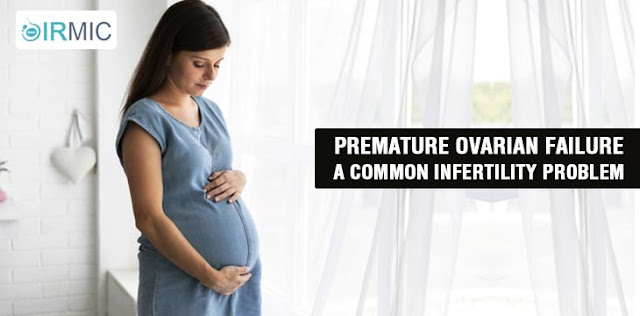The Most Talked About Subject Of Women And Infertility
There is a minimum of 2 million cases of female infertility documented in the United States of America and other countries every year. For most of these women, the causes of their infertility are never known or are rarely diagnosed, and modern medicine is yet to provide comprehensive female infertility treatment. Now, there are various known and unknown factors contribute to female infertility. In case a woman has been diagnosed with infertility or is unable to conceive, she would probably desperate to understand more about female infertility and find out what alternative cures and female infertility treatments are available.
There are several known causes of female infertility, some of these include:
Ovulation disorders - Usually, ovulation fails to occur due to hormonal imbalances and the failure to ovulate can result in irregular or absent periods. The hormonal imbalance that contributes to failed ovulation has been attributed to factors such as extremely low or high body weight, excessive exercise, prolonged emotional distress and thyroid problems. Other causes of ovulation disorders include endometriosis or PCOS.
Damage to the reproductive organs - damage to the delicate fallopian tubes, caused by pelvic inflammation (from STDs or Appendicitis) is the culprit for around 25 percent of female infertility cases. Other physical damage to the reproductive organs that contributes to female infertility includes damage and abnormalities to the cervix and uterus, for example, fibroids.
Hormonal imbalances - as you have already seen hormonal imbalances in women can result in failed ovulation and consequent infertility. Imbalance of progesterone can prevent the woman's body from being able to maintain pregnancy.
Chronic Miscarriage - Where in some infertile women may be conceiving, but are regularly losing the conception. Miscarriage can be caused by Thyroid problems, defective egg or sperm, hormone imbalance, malnutrition, drugs, trauma, and deficiencies in the immune system.
Nutritional deficiencies: These are very common and certain nutrients have been found to particularly influence the health of the reproductive system.
Psychological and emotional factors - Emotions affect your body and your health. When one has to come to understanding and treating female infertility, the mind-body connection is becoming an important focus. So far it has been around 5% of female infertility is caused by psychological and emotional factors.
Some more factors - Science and medicine are just beginning to understand how certain nutrients and behaviors can affect, and in many cases enhance and restore fertility. Some doctors are willing to admit that there are many areas of female infertility which are yet to be fully understood, and unfortunately, the medical community is reluctant.
Reference
Meet Dr. RK Sharma, a well-known infertility specialist and get yourself completely cured.
What Is Female Infertility?
It is a common thought that a woman is considered to be medically infertile if she has been having sex, without any form of contraceptive, for 12 months and has been unable to become pregnant. Fertility can be described in a medical sense as being either. The first stage of Infertility - women that have never had children
The second stage of Infertility - women that have had children, but are unable to conceive the second time.
It gets vitally important to make the distinction between infertility and sterility. Sterility, to understand, is the term used to describe women that are completely unable to conceive their children. Female infertility describes the difficulty that women experience in trying to conceive. Being infertile does not mean that you will never be able to have children.
The second stage of Infertility - women that have had children, but are unable to conceive the second time.
It gets vitally important to make the distinction between infertility and sterility. Sterility, to understand, is the term used to describe women that are completely unable to conceive their children. Female infertility describes the difficulty that women experience in trying to conceive. Being infertile does not mean that you will never be able to have children.
What Causes Female Infertility?
There are several known causes of female infertility, some of these include:
Ovulation disorders - Usually, ovulation fails to occur due to hormonal imbalances and the failure to ovulate can result in irregular or absent periods. The hormonal imbalance that contributes to failed ovulation has been attributed to factors such as extremely low or high body weight, excessive exercise, prolonged emotional distress and thyroid problems. Other causes of ovulation disorders include endometriosis or PCOS.
Damage to the reproductive organs - damage to the delicate fallopian tubes, caused by pelvic inflammation (from STDs or Appendicitis) is the culprit for around 25 percent of female infertility cases. Other physical damage to the reproductive organs that contributes to female infertility includes damage and abnormalities to the cervix and uterus, for example, fibroids.
Hormonal imbalances - as you have already seen hormonal imbalances in women can result in failed ovulation and consequent infertility. Imbalance of progesterone can prevent the woman's body from being able to maintain pregnancy.
Chronic Miscarriage - Where in some infertile women may be conceiving, but are regularly losing the conception. Miscarriage can be caused by Thyroid problems, defective egg or sperm, hormone imbalance, malnutrition, drugs, trauma, and deficiencies in the immune system.
Nutritional deficiencies: These are very common and certain nutrients have been found to particularly influence the health of the reproductive system.
Psychological and emotional factors - Emotions affect your body and your health. When one has to come to understanding and treating female infertility, the mind-body connection is becoming an important focus. So far it has been around 5% of female infertility is caused by psychological and emotional factors.
Some more factors - Science and medicine are just beginning to understand how certain nutrients and behaviors can affect, and in many cases enhance and restore fertility. Some doctors are willing to admit that there are many areas of female infertility which are yet to be fully understood, and unfortunately, the medical community is reluctant.
Reference
Meet Dr. RK Sharma, a well-known infertility specialist and get yourself completely cured.




Comments
Post a Comment